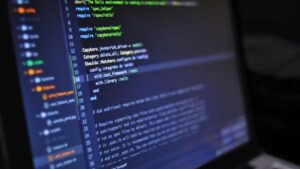Harnessing the power of Edpuzzle and GitHub together can revolutionise the way we approach learning and development. This combo provides an innovative platform for educators and learners alike, transforming traditional learning methods into interactive, engaging experiences.
Edpuzzle, a digital tool that allows customization of video content for educational purposes, and GitHub, the world’s leading software development platform, have individually made waves in their respective domains. But what happens when you merge these two powerhouses?
Edpuzzle Github
How Edpuzzle Works With GitHub
 The integration process starts with Edpuzzle, an educational platform that allows teachers to create and edit videos that suit their teaching needs. Teachers select videos, edit them, and customise their learning content. These video lessons get added to Edpuzzle’s library that can be accessed anytime.
The integration process starts with Edpuzzle, an educational platform that allows teachers to create and edit videos that suit their teaching needs. Teachers select videos, edit them, and customise their learning content. These video lessons get added to Edpuzzle’s library that can be accessed anytime.
GitHub, renowned for software development and version control, serves as a host for these edited video lessons, offering a robust system to maintain the data. After finalising the videos on Edpuzzle, they are pushed to a repository on GitHub, and the Edpuzzle link embeds them into the GitHub page. In essence, Edpuzzle functions as the creation tool, and GitHub becomes the repository for these resources.
Benefits of Linking Edpuzzle to GitHub Repositories
Connecting Edpuzzle’s custom video library to GitHub repositories offers many advantages. Firstly, it provides an organized platform for storing and accessing these educational tools. Teachers can manage their content with the extensive features of GitHub, such as collaboration, versioning, and detailed documentation.
Secondly, since GitHub is accessible publicly, it brings a broader audience reach to the educational material created on Edpuzzle. It makes e-learning resources available and accessible globally.
Setting Up the Integration
Creating a bridge between Edpuzzle and GitHub enhances the educational process, offering benefits like streamlined content creation, consolidation, and distribution. Here’s how to set it up.
Initial Setup Steps
To integrate Edpuzzle and GitHub, teachers commence with a well-defined initial setup path. First, a GitHub account gets created, provided one doesn’t yet exist. After that, repositories are established to act as content storage spaces. Each repository correlates to a different class, ensuring content segregation.
For example, an English teacher might have separate repositories for English Literature, Composition, and Grammar. Each one holds the relevant Edpuzzle video lessons for the corresponding class.
Next, an EdPuzzle account comes into account, which is then linked to the GitHub repositories. The Edpuzzle video library gets synced to the relevant GitHub repositories, offering an organised and accessible cloud storage solution.
Troubleshooting Common Issues
In the pursuit of a seamless digital education experience, some stumbling blocks come up. Among these issues, the most frequent revolve around authentication problems and repository syncing errors. Here’s a drill-down of each challenge and ways to resolve them:
Authentication Problems
 Educators and developers sometimes face problems while trying to authenticate their Edpuzzle and GitHub accounts. Invalid credentials or outdated application permissions commonly trigger these issues. To resolve authentication problems, follow these steps:
Educators and developers sometimes face problems while trying to authenticate their Edpuzzle and GitHub accounts. Invalid credentials or outdated application permissions commonly trigger these issues. To resolve authentication problems, follow these steps:
- Validate Credentials: Double-check the username and password entered for any typos or misspelt words.
- Update Permissions: Review the application permissions. If outdated, update the permissions on both platforms.
- Password Reset: As a final recourse, resetting the password might resolve the issue. Use the ‘Forget Password’ option on the login page.
These actions constitute the most proficient method for circumventing any authentication hiccups.
Repository Syncing Errors
Another prevalent problem within the integration of Edpuzzle and GitHub is repository syncing errors. These arise because of network issues, large file sizes or conflicts with the repository’s structure. To troubleshoot repository syncing errors adopt these steps:
- Check Internet Connection: A stable, strong internet connection ensures smooth syncing of repositories.
- Reduce File Size: Large files can slow down syncing or stop it outright. Reduce the file size, if possible.
- Resolve Conflicts: Identify any conflicting files or branches and manually resolve them to enable syncing.
Adopting these measures proactively helps preempt and resolve repository syncing errors, ensuring a smoother operational flow in the integration of Edpuzzle and GitHub.